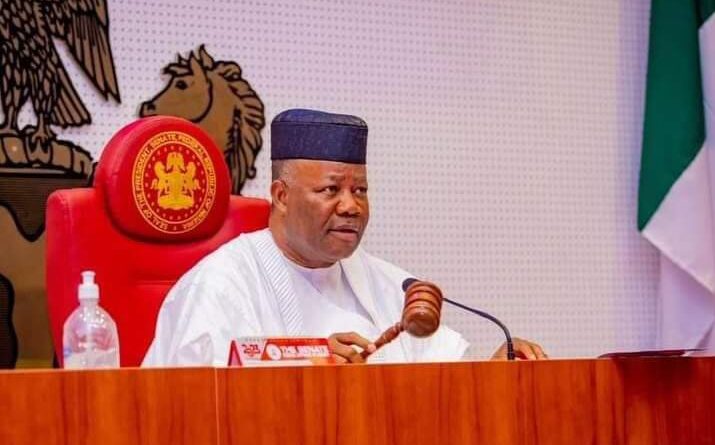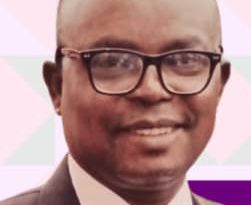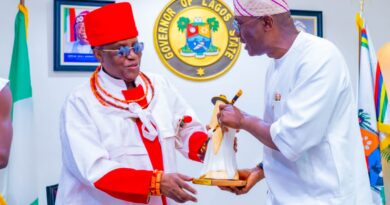Nigeria’s Senate: Building Stronger Institutions Through International Cooperation
By Edward Usoro
In a remote part of a tiny province in Canada, Herbert Marshall McLuhan saw the future. It was in 1964. Then, the world was still half-blind and too utopian. “I have a vision of the world as a global village, a world without boundaries”, he announced, casually.The simplicity of the pronouncement made many dismiss him as a mere dreamer.
Today, the concept of “global village” which was then about the potential influence of television, computers, and other electronic information sources in shaping societies and modern life, has metamorphosed in various spheres.
But, in essence, the term has succinctly proven one thing. That people, the world over, can and are interconnected – through politics, social relations, the use of new media technologies and other means of interconnectivity. These have materialised in areas like culture, trade, information, transportation, communication, job opportunities, improved standard of living, modernity, etc.
Today, like Li Keqiang, the former Premier of the People’s Republic of China, once said: “We live in a global village. No country can live in isolation from others, like Robinson Crusoe.” Jackie Chan, the famous actor agreed, when he said: “We live now in a global village and we are in one single family. It’s our responsibility to bring friendship and love from all different places around the world and to live together in peace”.
It’s based on the above summations that Nigeria’s Senate President, Godswill Akpabio, has been seeking international cooperation with some advanced countries. Although he has received many foreign partners in audience since he assumed office, the latest meeting with the Charge D’ Affairs for the US Embassy and his team, offered Nigeria a chance to push for building stronger institutions.
Akpabio had used the occasion to call for better collaboration between Nigeria and the United States, particularly in the area of capacity building for the legislators. Indeed, from the standpoint that Nigeria’s presidential system of government is evidently drawn after the American method, there’s need to learn from experience. Nigeria’s 25 years of civil rule stands to gain a lot from America’s uninterrupted 240 years of democracy.
Interestingly, the Senate President was neither asking for financial aid, nor debt rescheduling. His request was targeted at building a stronger institution for the country, an aspect which the United States is strongly known for.
“Please link us properly with your Congress and the Democratic Institute in the US for us to have proper training and retraining in order for us to build capacity for our legislators in general… Not just in the Senate; not just in the House of Representatives but across the nation,” Akpabio said.
Through such solicited cooperation, hitherto stranger nations are already turning into “a global village.” To avoid becoming a dejected island onto itself, Nigeria must be part of that quest, which ultimately engenders peace and faster development.
Foreign relations, according to experts, encompass all acts that affect relationships between one country and another. While, in most countries, the leading role of the executive in the field of foreign policy is clearly constitutionally established, the legislature has a sizeable chunk of responsibility in bringing this to bear.In Nigeria, the National Assembly wields a considerable constitutional power over the country’s foreign policy.
To be clear, there are specific and general constitutional provisions that subject executive action to legislative approval or scrutiny.
For instance, the president, experts argue, cannot without the endorsement of the National Assembly declare war against another country. Nor can he deploy the armed forces on combat duty outside Nigeria without the Senate’s express approval (Section 5(4), CFRN, 1999).
A recent instance was when the 10th Senate voted against the option of mobilising military troops to intervene in Niger Republic’s coup crisis. Indeed, many of the items over which the National Assembly exercises legislative competence are matters which have direct or indirect implications on the country’s foreign relations.
Thus, according to J. O. Arowosegbe and R.O. Akomolafe, both of Osun State University, “whenever the National Assembly legislates on any of these items, it thereby makes its contribution to the nation’s foreign relations policy.
”Some of the items on the exclusive purview of the National Assembly are arms, ammunition and explosives; aviation; awards of national honors and decorations; borrowing of money within or outside Nigeria for the purpose of the federation or any state; citizenship, naturalization, and aliens; copyright; customs and excise duties; deportation of persons who are not citizens of Nigeria; diplomatic, consular, and trade representation.Others include: exchange rate control; export duties; external affairs; extradition; immigration and emigration from Nigeria; maritime, shipping and navigation; nuclear energy; passports and visas; trade and commerce between Nigeria and other countries, etc.
Expectedly, collaboration with a country like the USA is bound to expose our national lawmakers to proper handling of legislations concerning those issues.
As earlier stated, the envisaged cooperation is likely to strengthen Nigeria’s institutions, starting with the legislature. It is strongly argued that without effective, accountable and inclusive institutions in a country, there can be no progress in the delivery of even essential services such as health, education, clean water, sanitation and transportation, among others.
Nations with stronger institutions are more progressive than those with stronger individuals. Most advanced democracies are synonymous with strong political, social and economic institutions.
As noted by Monsur Muritala in the Punch Newspaper of August 8, 2023, it was only under strong institutions that the United States could survive, recently, when the former President Donald Trump tried to manipulate them for his political gain.
In agreement, Aare Afe Babalola, SAN, in Vanguard (online edition of Jan 14, 2021) said:“Trump employed a multi-faceted d strategy to retain power, attempting to use the executive, the legislature and the judiciary, all to no avail. Under the Constitution of the United States, the Vice President is an officer of the legislative branch as the President of the Senate.
Trump had attempted to use Pence’s position in the Senate to discard the electoral votes required to make Biden the next President. However, Pence insisted that he did not have the powers to throw out the electoral votes as Trump had wanted”.
Drawing a parralel between Nigeria and the US, Babalola, SAN, added: “… it is clear that the United States has political institutions which are bigger than any of its elected representatives, one which cannot falter to threats, intimidation or coercion even from the sitting President.
This, however, is not the case in Nigeria.” Through the cooperation envisaged by the 10th Senate, the eyes of many Nigerian politicians are likely to open against selfish antics that only compromise the sustenance of democratic values and cultures. Moreover, such international relations could help the National Assembly to assist in shaping the nation’s foreign policy through legislation.
Experience, it is often said, remains the best teacher. And, to know more, you must be humble, committed and dliligent enough to seek knowledge wherever it may be found. According Ruth Brooks, a state’s foreign policy reflects its values and goals, and helps drive its political and economic aims in a global space. A nation’s foreign policy typically works in tandem with its domestic policy.
Together, the two policies work to strengthen the country’s position both within and outside its borders. Today, Nigeria’s National Assembly, under the watch of Senator Godswill Akpabio, stands at the threshold of history, as it paves the path towards building stronger institutions in the country, through international collaborations.
Usoro, a public affairs commentator, writes from Lagos._



